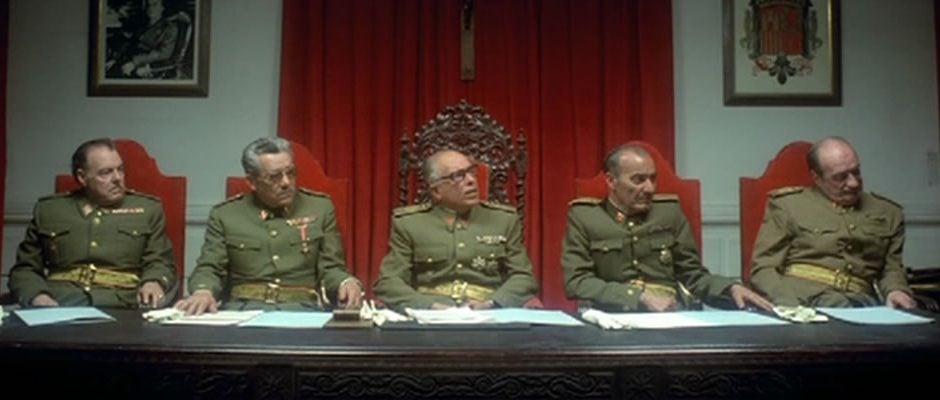
Last Sunday, 9th April, as part of HOME’s ¡Viva! Spanish and Latin American film festival, festival goers attended a screening of distinguished director Eloy de la Iglesia’s El diputado (Confessions of a Congressman).
First released in 1978, this was one of the films being shown in celebration of the festival’s main theme this year: art and culture from La Transición, Spain’s transition to democracy. This was a period in which the arts flourished, no longer subject to strict censorship under Franco’s regime. It is was with the production of this film, as well as others including Los placeres ocultos (Hidden Pleasures) and El sacerdote (The Priest), that the gay socialist filmmaker, De la Iglesia, brought taboo subjects to Spanish cinema screens in the late 70s, and now HOME has brought it to Manchester.
El diputado tells the story of a closeted left-wing politician, Roberto Orbea (José Sacristán), who is elected leader of his party the following day in the first democratic elections since Franco’s death. Unfortunately for Roberto, his popularity has reached its zenith, as a huge scandal involving his private life is about to come to light and destroy his reputation. Through Roberto’s narration, we learn of his decision to marry fellow Marxist, Carmen (María Luisa San José), suppressing his homosexual desires in an attempt to distance himself from what he, rather fatalistically, deems to be a life of squalor reserved to the confines of sordid public toilets and army barracks. The surreptitious element of Roberto’s sexual existence pervades into his clandestine political activities, which eventually land him in prison. Whilst incarcerated, Roberto’s sexual predilections are rekindled, and soon after, he engages in an affair with an underage rent boy, Juanito. Little to Roberto’s knowledge, their whole relationship is a sham, set up by his far-right rivals in a plot to blackmail him.
Sacristán delivers a mostly convincing performance and behaves in the cautious manner one would expect of a politician in a secret affair. Some scenes, however, will have you wanting more passion from all the actors—a guilt-ridden Roberto confesses his sexual antics to Carmen, who, already aware of his orientation, rather apathetically tries to form a “concrete analysis of the concrete reality”. The couple may very well have a logical approach to their relationship, but this provides the perfect excuse for an otherwise rigid performance.
What the acting lacks in vigor is more than made up for with the film’s brazen portrayal of all things taboo. Sex and drugs come together in a way that is, at one particular point, fairly shocking to even the most desensitised of millennials. At times, it all seems a bit gratuitous and surplus to the plot, but De la Iglesia’s experimental exploration of these themes allows modern day viewers to appreciate the uncharted celluloid and political territory Spain was heading into at the time. De la Iglesia adds a touch of social realism with clips of political demonstrations and rallies, creating a sense of imminent danger and uncertainty that builds over the course of the film. As well as empathising with Roberto as a marginalised member of society, we vicariously experience the political anxieties of La Transición. Sure enough, three years after the film’s release, the 23-F coup d’état took place. It was precisely this kind of event that Spaniards had feared, and De la Iglesia evidently did a brilliant job at foreseeing it.
With a grim plot, El diputado is certainly not an easy watch, but where the film really excels is as a portrait of La Transición. Looking back forty years after its release, it really shows how much of a success Spain’s transition to democracy was, as well as how quick directors were to challenge taboos and attempt to change attitudes towards them for the better.
Filed under: Film, TV & Tech
Tagged with: ¡Viva! Spanish and Latin American Festival, 2017, Confessions of a Congressman, El diputado, El diputado 1978, HOME, homemcr, la movida madrileña, LGBT, LGBT history, manchester, politics, post-Franco Spain, Spanish history



Comments